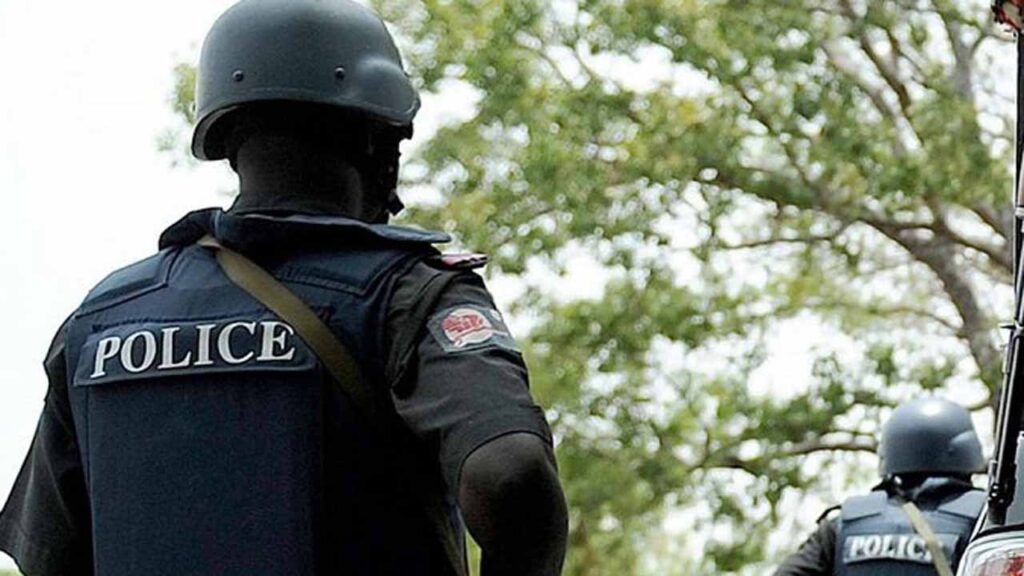
State police,within the purview of Nigeria’s United States-modelled federal and presidential system of government, means a policing model administered at a devolved or sub-national level.
Nigeria currently operates a unitary command-and-control policing structure with the Inspector-Generalof Police atop and state-police commissioners, across 36 states and federal capital territory, who report to, take orders from, and are answerable to, him. This has been Nigeria’s operating police model for over 50 years!
Attention therefore, turns to three highly relevant statutory provisions. First, section 14 (2) (b) of Constitution of the Federal Republic of Nigeria 1999 (as amended) (the “Constitution”); which establishes that “the security and welfare of the people shall be the primary purpose of government”.
Second, section 214 (1) of the Constitution which explicitly provides that: “there shall be a police force for Nigeria, which shall be known as the Nigeria Police Force, and subject to provisions of this section no other police force shall be established for the Federation or any part thereof…”
By these provisions therefore, the Nigeria Police Force has a monopoly of police powers in the country. Third, section 2(d) of the Nigerian Police Force Act 2020, which repealed the Police Act C.19 Laws of the Federation of Nigeria 2004, with specific objective to “empower the Police Force to effectively prevent crimes without threatening the liberty and privacy of persons in Nigeria.”
A holistic reading of those provisions, and Part1, Schedule II, Item 45 of the Constitution, which imbues policing within the exclusive legislative competence of the federal government, thus, invokes important posers.
Is the law, that is, the Nigerian constitution in this case, made for Nigerians, or, are Nigerians made for law? Is the law static and intended to be? Of what use is law, which is static and fails to nimbly adapt to the demands, volatilities, uncertainties, complexities and ambiguities of dynamic societal change?
If there is lacuna in the law, to the extent that it is incapable of addressing present-day societal ills, extremist terrorism, virulent banditry, kidnapping and felonious criminality; are policy- makers to wait indefinitely for hundreds of thousands of Nigerians to die, and for millions to be internally displaced, whilst the process for constitutional amendments languidly meanders through Nigeria’s bi-cameral legislature?
How then will reasonable people assess the effectiveness of the overriding constitutional obligation of government; “security and welfare of the people”, relative to the heightened insecurity in vistas of Nigeria vis-à-vis police powers? Nigeria’s fourth republic is in its 25th year so, in democratic terms, it is relatively mature. That proposition further begs the question as to the logic of the use of “force” in the description of the Nigeria Police?
For starters, laws are designed for mankind and society; mankind and society are not designed for law. This hypothesis receives affirmation in the Latin maxim ubi societas, ibi jus, where there is society, law subsists. The argument therefore is that the law should be compelling, dynamic, fit-for-purpose, meaningful and serve the aspirations of the citizens through whom, the law itself derives credence and legitimacy.
Authority for this assertion is established in the Preamble to the Constitution which provides inter alia “We the people of…Nigeria do hereby make and give to ourselves the following Constitution…”
According to the Global Terrorism Index 2024 Report, Nigeria is one of ten countries internationally which accounted for 87 per cent of terrorist-related-deaths in 2023; where fatalities directly attributed to ISWA and Boko Haram terrorism in the country rose by 34 per cent to 524.
On March 14, 2024, 17 gallant officers of the Nigerian Army were murdered in Delta State. On February 1, 2024, Oba Segun Aremu-Cole, was shot dead by terrorists, who also abducted his wife and others in Kwara State. In January 2024, terrorists ambushed and killed Oba Ogunsakin and Oba Olatunji, in Ekiti State; and killed seven farmers in Gwoza, Borno State.
In the same month, terrorists kidnapped five students, three teachers and the bus driver of Apostolic Faith Group of Schools, in Emure-Ekiti. The governor of Plateau State announced a curfew on Tuesday, January 23, 2024, following a terrorist incident in which approximately 30 persons were killed.
Approximately 160 people were killed on Christmas Eve 2023, by terrorists in coordinated across 20 communities in the Bokko/Barkin Ladi precincts of Plateau State (FT). According to Associated Press, no group took responsibility for the heinous attacks, though “blame fell on herders from the Fulani tribe, who have been accused of carrying out such mass killings across the north west and central regions where the decades long conflict over access to land and water, has further worsened the sectarian division between Christians and Muslims in Africa’s most populous nation.”
The attacks prompted the UN High Commissioner for Human Rights, Volker Turk, to call for the Nigerian authorities to “conduct, prompt, thorough and independent investigations into the attacks…”
These gory statistics are by not isolated incidents, and notwithstanding the gallantry of men and women of the Nigerian Police Force. Because, it highlights the materially significant fact that the Force faces herculean challenges, wholly, or partly, in discharging its key functions pursuant to the provisions of sections section 2(d) of the Nigerian Police Force Act 2020, to “to effectively prevent crimes without threatening the liberty and privacy of persons in Nigeria”; and section 2 (e) of the same enactment which defines the functions of the Police Force as “the safety and security of all persons, communities and property in Nigeria.”
Accordingly, the existing unitary policing command-and-control model is unsustainable given the inability of the police to meet the scale, complexities, and resilience of the significant threats it faces from extremist terrorists, bandits and kidnappers.
Doing nothing is not an option and the present lacuna in policing strategy, can be reinforced with a devolved policing model called state police! It works in other countries with much lower crime rates than Nigeria (65.80 crimes per 100,000 people); like Sweden (48.10 crimes per 100,000 people); and Switzerland (24.90 per 100,000 people).
Take the UK! Policing is operationally and financially devolved across 43 territorial police units in England and Wales, Police Scotland and the Police Service of Northern Ireland. There is robust strategic collaboration amongst all these devolved policing authorities and the British Transport Police, which oversees the safety of the rail network nationwide.
Plus, the National Police Chiefs’ Council is an interoperable organisation which facilitates coordination across all the independent police units across the country.
Police devolution models are equally evident in Australia, regarding the Northern Territory Police, Queensland Police Service, South-Australian Police, Tasmania Police, the Victoria Police and the Western-Australian Police. Strategic coordination is accomplished with the Australian federal police which exercises jurisdiction on federal crimes.
Likewise, in the United States, the Mayor of New York appoints the New York Police Department’s Commissioner. Similar devolved-policing models apply in Arkansas, Delaware, New Hampshire, Pennsylvania and Texas.
Is the state-police model a silver-bullet for all terrorist and serious crimes in Nigeria? No! Nevertheless, statistics on devolved policing are compelling. According to the 2024 World Population Review crime index survey, the countries analysed above with devolved policing models viz: Australia, recorded 46.70 crimes per 100,000 people; United Kingdom, recorded 46.90 crimes per 100,000 people; the United States recorded 49.20 crimes per 100,000 people. And Nigeria, with a centralised command-and-control policing model recorded 65.80 crimes per 100,000 people.
Thus, the average crime rate per of 47.6 crimes per 100,000 people in Australia, UK and USA springs a statistically significant positive variance of 18.2 crimes per 100,000 people in Nigeria. Thus, given the bounded statistical-evaluation above, there is no basis for a centralised policing model in Nigeria!
However, opponents of devolved policing vehemently argue that it would invest state governors with too much power, which can be utilised corruptly and against political opponents. That’s certainly an argument, however, it is unpersuasive on several counts.
First, Nigeria’s 4th Republic (1999 to present) is circa 25 years and, has attained a degree of democratic resilience however imperfect that is. Since 1999, Nigeria has had five democratically elected leaders which demonstrates some degree of political maturity.
Contrast that with Rwanda, which has had a singular president for over 20 years in one party state! Therefore, the notion that a state police would magically metamorphose a democratically-elected Nigerian governor into a demigod is fanciful.
Second, Nigeria’s Constitution empowers legislators at national or state level, to impeach a president or governor, if the occasion warrants it, pursuant to section 143, and section 188 respectively. Thus, Nigeria’s constitutional framework provide in-built checks and balances which interdict authoritarianism.
Third, according to Indian Independence leader, Mahatma Gandhi (1869-1948), “you may never know what results come from your actions, but if you do nothing, there will be no results.” State police is a concept whose time has come given the current realities and security threats confronting Nigeria. Doing nothing defies strategic logic.
Fourth, the pragmatic necessity of state police in the country is already evident given subsisting security outfits, which complement national policing. Notably, Amotekun, Borno State Civilian Joint Task Force, Ebube Agu, Niger State Special Vigilante Corpsetc.
Fifth, the word “force” means coercion, compulsion and violence relative to policing. It is antithetical to reason within a progressive democratic society, which Nigeria aspires to be. Policing, within Nigeria’s constitutional architecture, is embedded within the executive and is a service, of which law enforcement, is but an important constituent.
To the extent, that the UK’s Metropolitan Police Service, the New York Police Department, Queensland Police are not symbolically defined by “force”, that noun should be discarded because it is unfit-for-purpose.
Finally, even with state police a reasonable degree of interoperability will subsist with federal security agencies including the Customs, DSS, EFCC, NSCDC etc, within the overarching aims of national security. Patently therefore, time is of the essence and legislative processes, ditto strategic policy decisions on police devolution, cannot be delayed any longer. Decisive action is required now!
Ojumu is the Principal Partner at Balliol Myers LP, a firm of legal practitioners and strategy consultants in Lagos, Nigeria, and the author of The Dynamic Intersections of Economics, Foreign Relations, Jurisprudence and National Development.













